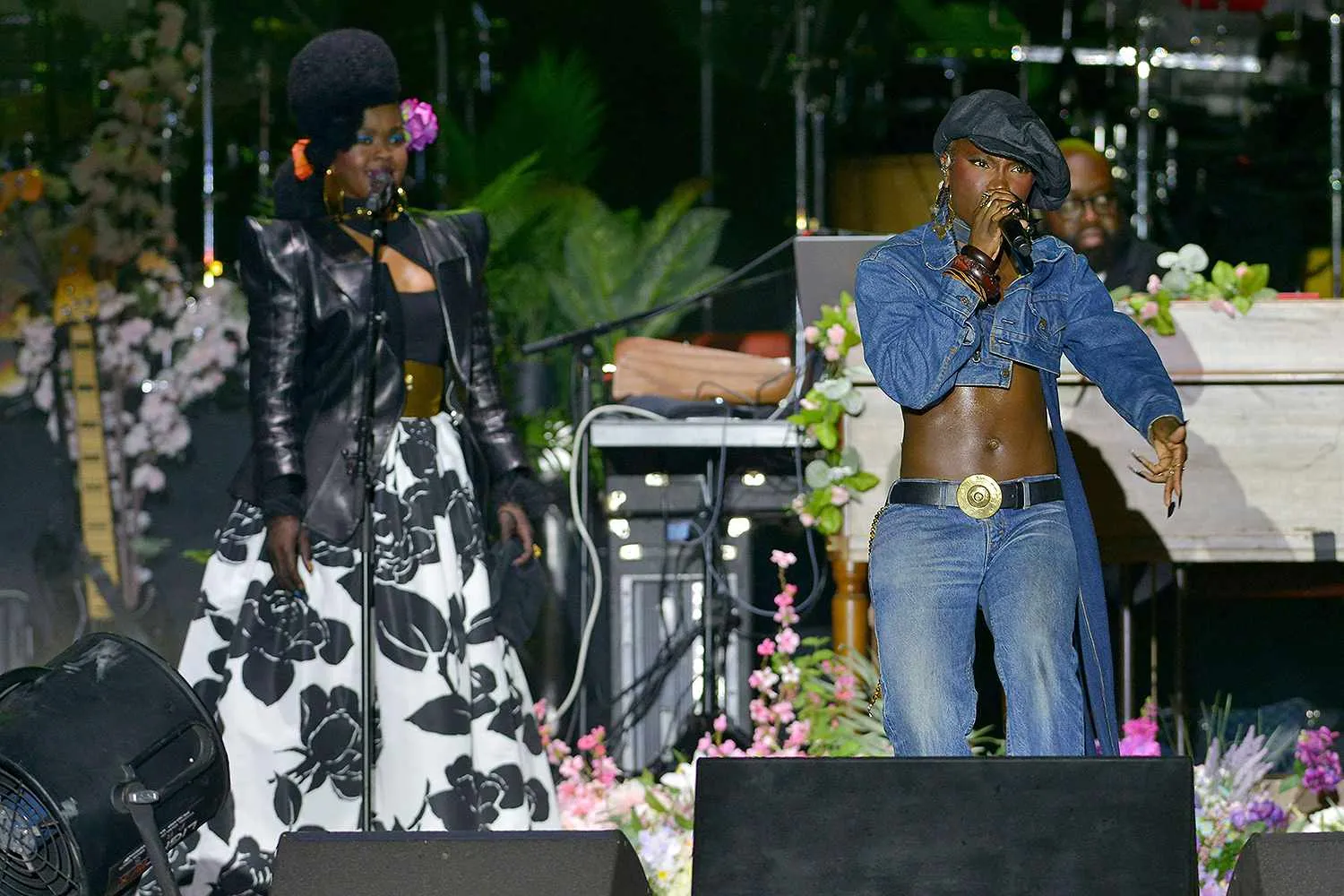Lauryn Hill’s Controversial Claims: Are Clickbait Headlines Sabotaging Her Career?
Lauryn Hill, the iconic singer and rapper known for her groundbreaking work with the Fugees and her solo album The Miseducation of Lauryn Hill, has recently made headlines for attributing low ticket sales for her U.S. tour to “sensationalism and clickbait headlines” in the media. This statement has sparked a heated debate about the role of journalism in shaping public perception and its potential impact on artists’ careers.
In a recent interview, Hill expressed her frustration over the media’s portrayal of her, particularly in light of the Fugees’ canceled tour. While many fans were eager to see the legendary group perform, the tour was called off, and Hill suggests that the media’s sensationalist narratives played a significant role in this outcome. “It’s disheartening to see how stories can twist reality,” she said. “I feel like the media is often more focused on drama than on the artistry.”
The cancellation of the Fugees’ tour is not an isolated incident. Hill has faced scrutiny throughout her career, often linked to her history of lateness and personal struggles. Critics argue that her past behaviors have overshadowed her musical achievements, creating a polarizing image that complicates her public reception. Hill’s comments about clickbait journalism reflect a broader concern among artists who feel that their work is often misrepresented or sensationalized.
The rise of clickbait journalism has transformed the landscape of media reporting, leading to headlines that prioritize sensationalism over accuracy. This shift raises questions about the responsibility of journalists in shaping narratives and the potential consequences for artists. Hill’s assertion that low ticket sales are a result of media portrayal rather than her performance issues has ignited discussions on social media about the impact of sensational headlines on public opinion.
- Media Sensationalism: Hill’s claims highlight the ongoing tension between artists and the media, particularly in the age of digital journalism.
- Public Perception: The narratives created by journalists can significantly influence how the public perceives an artist, often overshadowing their talent and contributions.
- Economic Factors: While Hill attributes her tour’s struggles to media portrayal, external factors such as the economic climate and the lingering effects of the pandemic must also be considered.
The controversy surrounding Hill is not new; she has long been a figure of fascination and scrutiny. Her career is marked by both critical acclaim and controversy, making her a complex and polarizing figure in the music industry. Many fans argue that her artistic contributions have been overshadowed by sensationalist headlines that focus on her personal life rather than her music.
Hill’s recent injury, which led to the rescheduling of some shows, has further complicated the narrative surrounding her tour. Despite these challenges, she remains committed to her art and expresses a deep emotional connection with her audience during live performances. “I want my fans to know that every time I step on stage, it’s about the music and the message,” she stated.
The media’s portrayal of Hill has often fixated on her late arrivals to concerts, overshadowing her musical achievements and contributions. This focus on her personal struggles rather than her artistry raises important questions about how artists are represented in the media. As Hill continues to navigate her career, her statements have sparked discussions about the role of the media in shaping public opinion and its consequences for artists.
In conclusion, Lauryn Hill’s claims about clickbait headlines and their impact on her career highlight the ongoing challenges artists face in the digital age. The intersection of media sensationalism, public perception, and commercial success creates a complex landscape for musicians trying to connect with their audiences. As Hill prepares for her upcoming shows in the UK and Europe, it remains to be seen how these controversies will affect her career moving forward. The conversation surrounding her statements underscores the need for a more responsible approach to journalism that prioritizes accuracy and fairness over sensationalism.






Leave a Comment